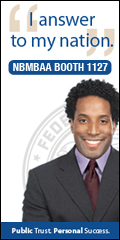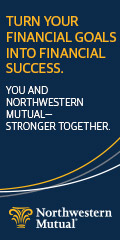
From the Institutes Plenary: True Leaders Must Recognize the Value of Trust
By Robin Farmer
 Business leaders and society must reframe the value of trust as it has emerged as "the new currency of our collaborative, interdependent world," Keynote Speaker Stephen M. R. Covey said during Tuesday’s Institutes Plenary session. Business leaders and society must reframe the value of trust as it has emerged as "the new currency of our collaborative, interdependent world," Keynote Speaker Stephen M. R. Covey said during Tuesday’s Institutes Plenary session.Such reframing is essential following the global financial crisis that produced a low-trust climate, said Covey, who also highlighted a business and leadership case for trust.
"Trust is always seen as a good thing, but many see it as soft, touchy and feely. But let me give you a new way of looking at it," the bestselling author and co-founder of CoveyLink and the FranklinCovey Speed of Trust Practice told a rapt audience.
Covey offered what he called the three big ideas about trust:
A trust tax exists in business. When low, it reduces speed and increases cost.
"When trust goes up, everything happens faster and the costs go down," Covey said. "Nothing is as fast as the speed of trust," he said, adding that high trust organizations outperform low trust organizations by 286 percent in total return to shareholders. The best place to work is where there is a high trust in the culture, he said. As far as the leadership case for trust, "it is the number one competency because if you get good at trust it will make you better at everything else you need to do." Trust energizes and accelerates cultures, melds a group of people into a team, forms partnerships and collaboration and serves as a magnet for attracting and retaining people.
"Trust is more important today because we are increasingly operating in a low trust world."
Your credibility and behavior can help restore trust, Covey said. Build credibility through the power of your character.
"How we do business is as important as the business we do," he said. "Real leadership is getting results in a way that inspires trust." Covey encouraged business leaders to practice extending trust. "If you only get one thing let it be this: If you as a leader want to be trusted, you’ve got to give trust. There is a reciprocity of trust, and when you give it people receive it and return it. There is a risk in trusting, but there is also a risk in not trusting. I would suggest not trusting is worst. The first job of a leader is to inspire trust and the second job is to extend trust. That transforms a manager into a leader. Don’t let the few abusers (of trusts) tell you about the many."
In conclusion, Covey paraphrased a famous Ghandi quote: "Let us create the trust we seek in our world. It takes two to have trust, and it only takes one to start, and each of us can be that one."
|
National Black MBA Association, Inc. ® | 400 W. Peachtree St. NW, Suite 203 | Atlanta, GA 30308 www.nbmbaa.org |



